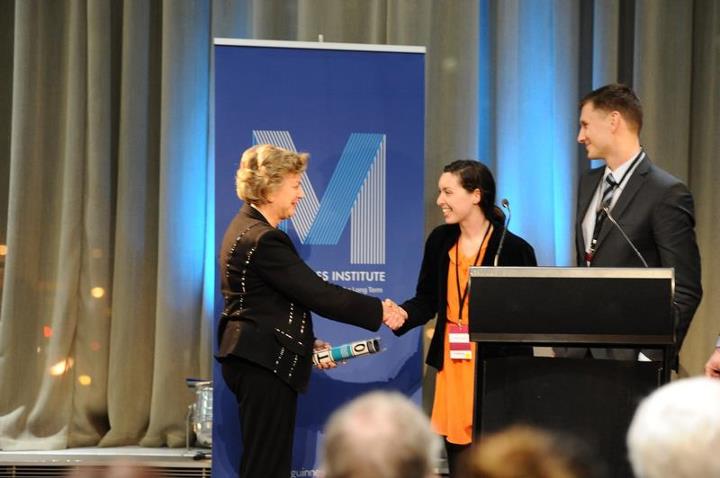7 September 2012
An overarching aim of the EmpowerNZ initiative was to provide a talking point for enhancing public knowledge and discussion about the constitution and the current review process. We wanted to take this opportunity to ensure that people reading this document understood its strengths and limitations.
At the EmpowerNZ workshop, the participants spent a large part of the first afternoon agreeing on five key values that underpin the constitution. In doing so there was a general consensus that these five values represented the group of fifty young people – this is reflected in the Preamble. It was not possible to gain complete consensus over the remainder of the document due to the time constraints.
On the morning of the second day we asked participants to self-select into six workstream groups, and those workstreams then developed text for their respective topics, resulting in a Preamble and five Parts. The different workstream groups were able to liaise with other participants and to receive a degree of feedback on their general approach, but there was not enough time to check consistency and obtain complete consensus over all elements of the text. It was for this reason that participants strongly wanted the word ‘Draft’ placed on the front of the final document.
Dame Dr Claudia Orange and Professor Philip Joseph added considerable gravitas to the workshop. This means the Draft Constitution can continue to be debated and discussed. To this end, I’ve invited Professor Philip Joseph to provide commentary and reflections, which can be found here.
One of the key lessons from this exercise is that young people want to be part of the conversation; that they want the constitution to have a greater public profile (not just sitting in a Cabinet Manual) and they want a constitution that is unique to New Zealand – one that reflects more of how they feel and one that speaks to the People. The imagery on the front cover represents a window, reflecting the desire to see how power is distributed within the inner engine room of Parliament. There was no desire to remove power from government or make it more rigid, rather a significant desire for greater transparency and public engagement.
In some ways the Draft Constitution is both bold and traditional:
- The participants want New Zealand to become a republic whilst also wanting to acknowledge a connection to the United Kingdom;
- They want to rename the Prime Minister Tumuaki and create a new Head of State called Kaitiaki, whilst also wanting the Kaitiaki to be given similar powers as currently exercised by the Governor-General; and
- They elected to uphold the doctrine of parliamentary sovereignty whilst also wanting more checks and balances through instruments such as the establishment of an independent Constitutional Commission, reviews of the constitution every twenty years and to give effect to the principles of Te Tiriti o Waitangi.
Further examples where the Draft Constitution is bold include the Declaration of Independence 1835 being treated as the first official document that affirmed Māori sovereignty and the entrenchment of the Organs of Government and Voice of the People (see Parts 3 and 4, and clause 5.3).
We began this process by passing lead facilitator Dean Knight a custom-made glass baton with a blank canvas inside. Over the next two days, the fifty participants with the help of the eight facilitators were challenged to draft a constitution fit for the 21st century. This challenge was met head on. It was with great pleasure that on the second evening I watched two of the participants, Sarah Baillie and Jeremy Wilson, pass the baton, now enriched with the thoughts and ideas of participants, on to Dame Dr Claudia Orange of Te Papa Tongarewa. She is now charged with taking the conversation to the People.
I believe that what was achieved is quite extraordinary; it is not often in one’s life that all the stars align, but for 48 hours at Parliament that is exactly what happened. It was my dream team of speakers, facilitators and participants, I simply could not have wished for more. Many thanks to everyone, most of all – the amazing McGuinness Institute team.
Wendy McGuinness
Chief Executive
McGuinness Institute
Please note: The EmpowerNZ workshop was privately funded by the McGuinness Institute, an independent think tank based in Wellington, New Zealand. The EmpowerNZ initiative, which includes both the workshop and the website, has received no public funds nor is it affiliated with the Constitutional Advisory Panel.



